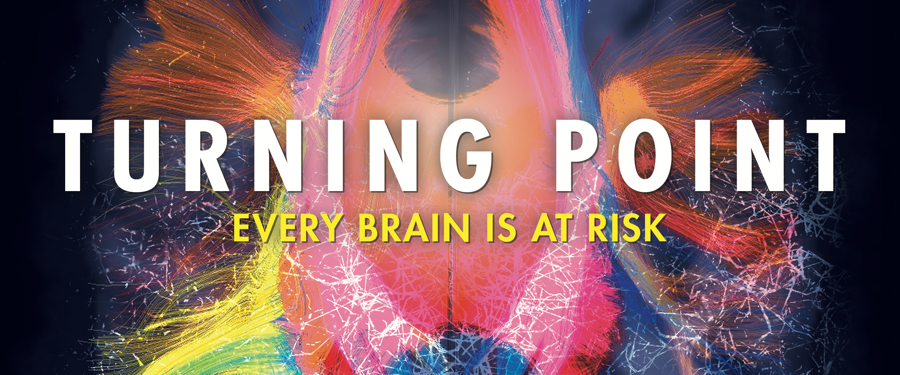The search for an Alzheimer’s turning point: Powerful lessons in a new documentary about a failed Alzheimer's trial

With a long line of disappointments in failed clinical trials, the last few years have not been good ones for drug development in Alzheimer’s disease. TURNING POINT is a documentary, produced in conjunction with BrightFocus Foundation, that follows the journey of researchers and patients working together on a trial for a new Alzheimer’s drug. The drug solanezumab, investigated by Eli Lilly & Co., looked promising in Phase 1 and Phase 2 trials, but in a crushing blow, failed to meet its primary endpoint in Phase 3. We sat down with the film’s director, James Keach, to discuss how all medical research is a story without an ending — but one which drives hope and provides the opportunity for all involved to leave a legacy.
Why did you decide to tell this story? What inspired you to tell it?
I was in Indianapolis on my way to Lilly to screen my film about Glen Campbell (I’ll Be Me), and I met a woman in a coffee shop who asked me what I was doing in town. When I told her that I was headed to Lilly, she said, "I love that company. They saved my grandmother’s life."
That made me think about the research scientists who are developing drugs that can change the world. Some have been working 30-40 years on Alzheimer’s research with no cure in sight. It’s amazing.
This is a story of people who confront failure every day and are not daunted by it. They accept that they will learn from their failures and they’re on a mission to save the rest of us. And I thought this was a very special story to tell.
Along the way, I learned about the medical system and clinical trials. I was struck by the passion of those families participating in research. They know the chances aren’t great, but they’re leaving a legacy that will be meaningful to the world. That’s incredible.
Can you talk about the spirit of these innovative researchers? What was it like to follow this research team for so long?
Their life is about discovery. They know the next advance might be years away, but they are still working very hard every day to get there. It was inspiring to be around that type of dedication.
How did this team balance the hope of a new treatment with the possibility that it might not actually work?
When you go through clinical trials, Phase 1 and Phase 2 create hope. If those are successful, the signals are there, and it’s exciting. But when you get to a bigger patient population in Phase 3, it’s complicated to find something that works for so many. Researchers know that. There’s a feeling of hope but in the back of their minds, they know the new treatment might not work.
What was it like to film the day they discovered the solanezumab trial didn’t reach its primary endpoint?
It was devastating. Like the researchers and patients involved, I thought the end of this story was going to be triumphant. They were so close. As one researcher says in the movie, on that day they were thinking about the millions of people who wouldn’t get the treatment — the millions of people who would be let down by this failure.
You also talked to patients as part of this documentary. What was their perspective on the failure of solanezumab?
The people doing the trials knew there was a good chance that it wouldn’t work and haven’t given up on research. One patient featured in the film with his wife and daughter hopes to get into another trial. It gives him purpose, and a reason for the whole family to keep fighting. That’s the whole point of the film — if you give up, it’s done, and we don’t want this to be the endgame.
Why is storytelling around clinical trials and medical research important?
Storytelling is important, period. It tells our experience and our journey as human beings. We relate to each other through the commonality of a story. Someone might read something about a symptom — about losing keys, or getting lost in the neighborhood — and realize it sounds like someone they know. That’s powerful. Or, if someone hears the story of someone in a trial and the drug works and all of a sudden that changes everything. That’s inspiring. These stories — our history, our commonality — we hear them and think, “that’s like me, I could do that.” And in clinical trials, where a lot of people are nervous or don’t know what to expect, that’s important.
What is your impression of clinical trials after making this documentary?
Before I made this documentary, I had no idea about trials. I didn’t know what they were or the impact they had on drug development, or the impact they have on all of us.
When you’re in a clinical trial, the treatment you receive is much more personalized and attentive. The staff at the trial sites I met were wonderful and empathetic. I also found that the trial patients were as much heroes as the scientists. They’re doing the work for the good of the rest of us. Being in a trial takes time. But it’s time well-spent.
What did you learn from making this documentary?
We need to work together to solve the problem of Alzheimer’s for all of society. To be indifferent and apathetic to the plight of others is the biggest sin we can commit. As the American astrophysicist Neil deGrasse Tyson says in the documentary, “We stand not on the shoulders of giants, but on the shoulders of everyone.”
To learn more about clinical trials, please visit https://www.brightfocus.org/clinical-trials. To learn more about TURNING POINT and see when you can watch a screening near you, please visit www.turningpointmovie.com.
Topics: For Patients
